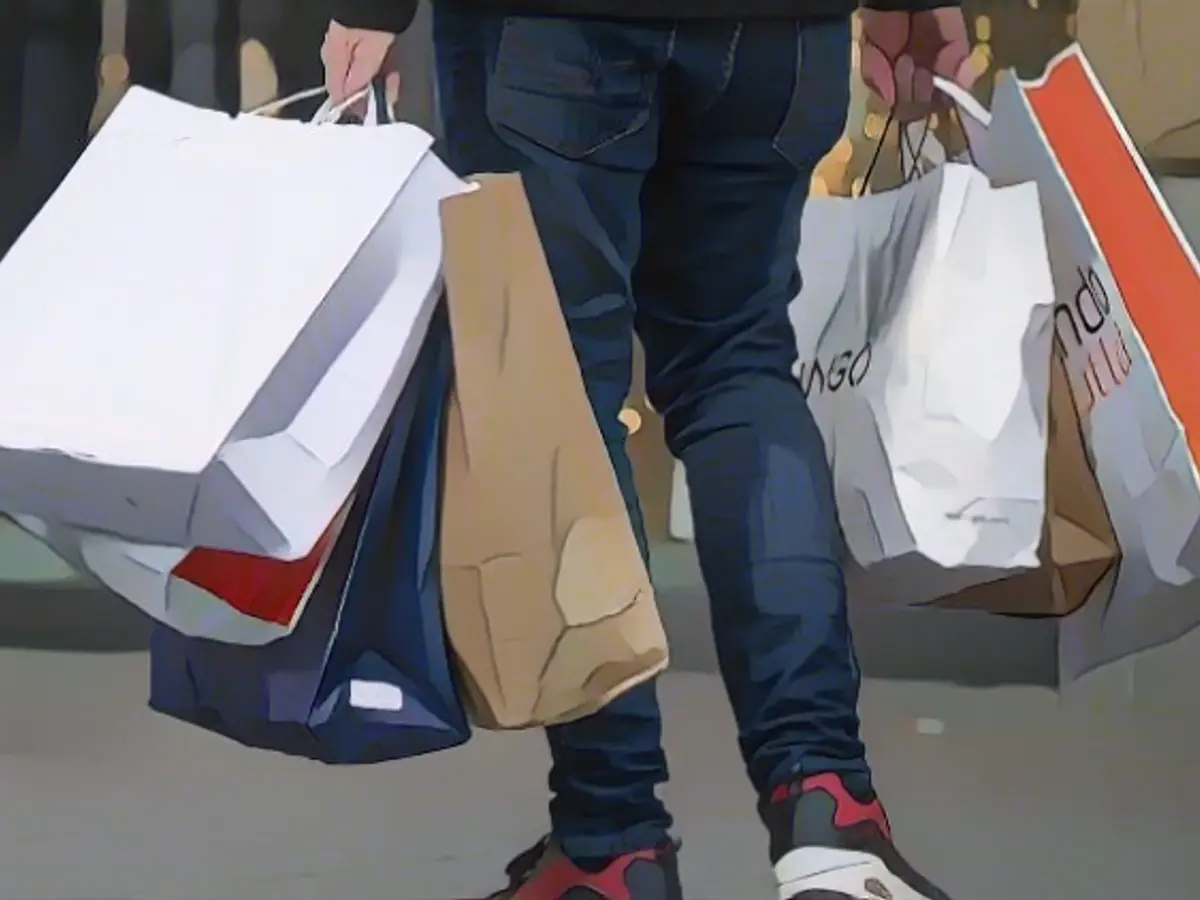Germans are shopping more offline again
The coronavirus pandemic is massively fueling the online shopping boom. However, it seems to have passed its peak. According to a survey, people are now reaching for their online shopping baskets less often and shopping more locally again.
Retail stores instead of online stores: according to a survey, the boom in online shopping in Germany, which was boosted by the coronavirus pandemic, is slowing down. The proportion of those who do at least half of their shopping online has fallen from around a third (32%) in 2022 to 26% now, according to Postbank, part of the Deutsche Bank Group, based on responses from 3038 adults from August of the current year. However, this is still higher than in 2019 (24%), the year before the outbreak of the coronavirus pandemic in Germany.
The average proportion of purchases made online fell for the second time in a row: from a high of 38% in 2021 to 35% in 2022 and 30% in the current year. In 2019, it was 29%.
"Shopping behavior is returning to normal after the end of the coronavirus restrictions, and the catch-up effect is playing into the hands of retailers," said Thomas Brosch, Head of Digital Sales at Postbank. "For younger people in particular, however, online shopping is here to stay." According to the survey, the proportion of people in the 18 to 39 age group who do at least some of their shopping online is significantly higher (37%) than among the over-40s (26%).
Respondents against the destruction of returns
Overall, around half of online shoppers in the regularly conducted "Postbank Digital Study" have stated for years that they only order products online that they are relatively certain will not be returned. More than 80 percent have been saying for years that they would welcome it if online retailers were prohibited by law from destroying goods returned by customers. This is because not all returns are resold, especially in the case of clothing.
The EU Commission recently put a stop to this practice: In future, larger retailers will no longer be allowed to destroy unsold clothing in the European Union. Small and micro-enterprises are exempt from this ban, while a transitional period of six years applies to medium-sized companies. In principle, the ban is to be applied two years after the regulation comes into force.
Read also:
- Why there is still no EU funding for green Saar steel
- 3 billion Saar Fund is unconstitutional
- Lack of snow also opens up new opportunities for winter tourism
- Abrupt end to e-car subsidies
Despite the decline in online shopping, retail trades still have opportunities to improve. For instance, Postbank's studies suggest that younger generations are more likely to engage in online shopping compared to older age groups. Additionally, the EU Commission's recent decision to prohibit the destruction of unsold clothing returned by customers in larger retailers could positively impact the retail trade sector, potentially increasing consumer confidence and reducing waste. Surveys indicate that most online shoppers are careful about returning products, and a significant portion would prefer retailers to stop destroying unwanted returns. Lastly, the postal bank can capitalize on the shift back to local shopping by providing convenient services for customers, such as package pick-up or delivery, which could potentially attract more shoppers to physical retail stores.
Source: www.ntv.de








